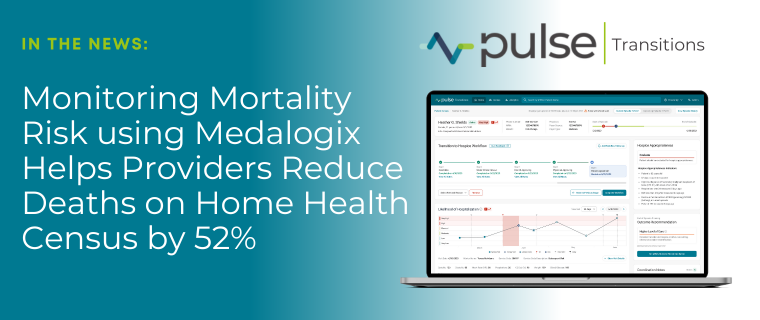Becker's: Not In Silicon Valley Anymore: The New Health IT Hubs
Becker’sAkanksha Jayanthi interviewed our CEO, Dan Hogan, about Nashville’s thriving Healthcare IT landscape. Check out the full article below.
For a long time, tech and innovation went hand-in-hand with visions of Silicon Valley and New York City. But new hubs of health-focused startups are emerging, as digital health companies lay roots in mid-sized metro areas.
According to the Kauffman Index of Entrepreneurship, healthcare isrankedNo. 4 in terms of U.S. industries with the largest share of high-growth companies in 2016. Within that sector, Nashville, Tenn., has the most high-growth company density among healthcare companies, meaning it has the most private companies that have achieved at least 20 percent annualized growth over a three-year period with at least $2 million in revenue. This can be seen in the growing amount of venture capital invested in the area, which stems from the city’s reputation as a hotspot for healthcare activity in general.
Other health IT hubs like Miami are still in the early stages of maturation, but entrepreneurs and innovators are priming the city for growth. One newly launched accelerator is harnessing Miami’s diversity, demographics and geographic location to test products that could eventually be scaled nationwide.
Startups and incubators are clustering in these and other mid-sized cities, forgoing the reputation afforded by Silicon Valley and other big tech cities and capitalizing instead on other factors.
Pull factors
When new companies look at where to set up shop, one of the biggest influencers is nothing more than where the founders live, according to E.J. Reedy, a senior fellow at Kauffman Foundation who helped author the Index of Entrepreneurship. While that sometimes may be in larger, more tech-focused areas like Silicon Valley — especially if a new company is spun out of an existing one — it also lends rise to places like Madison, Wis., home of Epic Systems.
Judy Faulkner had recently graduated from University of Wisconsin when she founded her company in 1979. Epic was originally headquartered in Madison before moving about 10 miles west to Verona, Wis., in 2005 when it outgrew its initial space.
Though geographically established by happenstance, Epic now serves as an economic anchor in the greater Madison area. At the Wisconsin Early Stage Symposium in 2015, a gathering of new companies, entrepreneurs, investors and business leaders, Peter Christman, an associate with seed stage tech investor Chicago Ventures, reiterated this idea, speaking of “the burgeoning, dynamic ecosystem that revolves around Epic here in town,” he said, according toThe Capital Times.
In fact, the Greater Madison Chamber of Commerce has harnessed this idea and launched a formalized marketing campaign to deem Madison as “the world-class leader for health technology” called theHealthTech Capitolinitiative.
In Nashville, Healthcare Corporation of America is the anchor drawing talent and companies to the area. Hayley Hovious, president of the Nashville Health Care Council, says HCA’s establishment in 1968 as one of the first — and now largest — hospital companies helped drive the entrepreneurial activity and spirit that persists today. HCA operates 169 hospitals and 116 surgery centers throughout the United States and the United Kingdom, so even though it’s headquartered in a mid-size city, it has a global reach.
Dan Hogan, CEO of Nashville-based digital health and predictive analytics company Medalogix, also points to HCA as a pillar of Nashville’s IT growth. He says companies have vaulted from hospital-focused ventures into other realms of care delivery, including billing, revenue cycle management and analytics.
As Ms. Faulkner did in Madison, Mr. Hogan founded Medalogix in Nashville in 2012 simply because that’s where he lived. But he says he’s benefited from the city’s growing network of health technology since it results in recruiting talent from other IT companies. “Were I not in Nashville, I wouldn’t have made half the progress [that I have],” Mr. Hogan says.
Growth is where the money is. Sometimes.
Even though HCA was founded close to 50 years ago, it wasn’t until recently that venture capital activity in Nashville picked up speed and spurred startup growth.
In Nashville in 2014, venture capital investment in health IT companies reached $62.5 million, up from just $2 million in 2009, according to ajoint reportfrom Nashville Health Care Council and Nashville Capital Network, a network that manages several investment funds. From 2005 to 2015, close to 60 percent of Nashville’s total venture capital investment dollars went to healthcare companies.
“When you have a good idea and you’re starting that idea here in this town, the money isn’t that hard to find,” Mr. Hogan says.
Money is also partly what drew accelerator Startupbootcamp Digital Health Miami to southern Florida, according to COO Cristian Robiou. Startupbootcamp launched in 2010 in Copenhagen, Denmark, and now operates 13 accelerators in 10 global cities. The Miami branch is the latest to open after receiving a $2 million grant from the Miami-based Knight Foundation. One requirement for the grant was the accelerator had to also be based in Miami.
According to the Kauffman Index of Startup Activity (a different measure than the entrepreneurial index mentioned above), Miami is theNo. 2 rankedmetropolitan area for burgeoning startup activity, when factoring in the rate of new entrepreneurs, the opportunity share of new entrepreneurs and startup density. (Nashville was No. 16.)
But Miami doesn’t see the scale of venture capital investment other hubs like Nashville do. Florida ranked No. 14 among states in venture funding in 2015, according to data from PricewaterhouseCoopers and the National Venture Capital Association. Using the same data, theMiami Heraldfound Florida received less than eight-tenths of 1 percent of the country’s venture capital funding, even though it’s the third most populous state.
While Miami is buzzing with startup potential, it is still in its early stages. What Miami may comparatively lack in venture capital, it makes up for through other characteristics and factors that uniquely position it to succeed.
In addition to settling in Miami because of the grant requirements, Mr. Robiou mentions two other pull factors that, when considering healthcare’s focus today, will likely become bargaining chips for the city. First, Startupbootcamp calls Miami “America’s city of 2050,” as it is demographically representative of the rest of the country.
Second, Miami’s geography is an asset. As medical tourism and telehealth trend, Mr. Robiou sees Miami as a link between the U.S. and entrepreneurs and ecosystems in Latin America.
The healthcare industry’s larger focus on population health and minimizing care disparities falls in line with Startupbootcamp Digital Health Miami’s overarchingmission: “to eradicate health disparities by attracting and scaling innovative startups working on digital solutions that could democratize access to healthcare.”
The intangibles
As evidenced by Miami, venture capital is only part of the formula for sustained growth. Equally important — perhaps even more so — are the informal elements of an industry’s infrastructure.
Mr. Reedy from Kauffman Foundation says strong entrepreneurial systems have robust social networks, connections and activities that continually bring entrepreneurs together across and within industries. “Those things are not large dollar amount types of activities but are often very helpful for building entrepreneurs with potential to scale,” he says.
Companies play off one another and build momentum, whether by moving talent, sharing ideas or partnering. Ms. Hovious points to HCAbuying stakein cognitive computing company Digital Reasoning in December 2015 as an example of this. The two companies now jointly develop healthcare applications.
A booming tech and startup scene also means greater talent pools for hospitals and health systems. Established institutions in the area also help this. Mr. Hogan says the academic environment in Nashville, which has 21 colleges and universities, is a pipeline that continually produces new ideas, talent and innovation.
Universities and their health systems often work hand-in-hand with startups and entrepreneurs. At the very least, they share a common mission of innovation and progress. U Innovation at the University of Miami, the technology commercialization arm of the university, is a partner of Startupbootcamp in Miami, as is Nicklaus Children’s Hospital.
Mr. Robiou is focused on mining Miami’s network and creating health IT-focused talent pools. “What Miami lacks in terms of tech talent is critical mass,” he says. Comparatively, he points to Silicon Valley’s hordes of software engineers focused on specific types of programming.
To draw out more demand for tech talent in Miami, Mr. Robiou says accelerator leaders speak with hospital and health system leaders about their main IT problems. “What if we can get programmers [and] engineers here who can help you with those problems?” Mr. Robiou says. “Once you have that fluidity in terms of need and in terms of supply — basically that link between supply and demand — you can start building a movement of engineers.”
Defining hubs: Think locally, change globally
Nashville is inarguably a health IT hub. It is anchored by one of the country’s biggest hospital operators, has given rise to an entrepreneurial spirit through networks and is responsible for a significant portion of the city’s economic output.
But Nashville’s reach extends beyond the city itself. Ms. Hovious says if a Nashville-based healthcare company — whether a hospital operator, ambulatory surgery center management company, healthcare real estate company or otherwise — institutes changes in service delivery, it has a nationwide affect. Why? “Scale. Absolute scale between health systems,” she says.
And that’s the underlying hope Mr. Robiou has for Miami. He hesitates to call Miami an up-and-coming hub for health IT. (“I’m searching for a metric where I can say, ‘This points to the fact that we are rising,’” he says.) But the ability to foster ideas and create a supportive, innovative environment to disrupt healthcare nationwide still is the goal for Startupbootcamp.
In aMediumpost, Mr. Robiou offered an ultimately optimistic, albeit cautious, view of Miami’s future: “Miami has more than its fair share of the raw inputs needed to make the city a hub for healthcare innovation,” he wrote.
*Originally published inBecker’s.
Related Blogs

Pulse Episodes sees rapid growth, now supports over 25% of US Home Health Average Daily Census
[Nashville, January 2, 2025] Medalogix, the leading data science and cli...

How Hospice Agencies Can Leverage Technology to Flourish Under New CMS Hospice Requirements
Summary: Hospice agencies face consistent headwinds, among them...

Monitoring Mortality Risk using Medalogix Helps Providers Reduce Death on Home Health Census by 52%
NASHVILLE, Tenn., November 22, 2024 -- Medalogix, the leading machine le...


